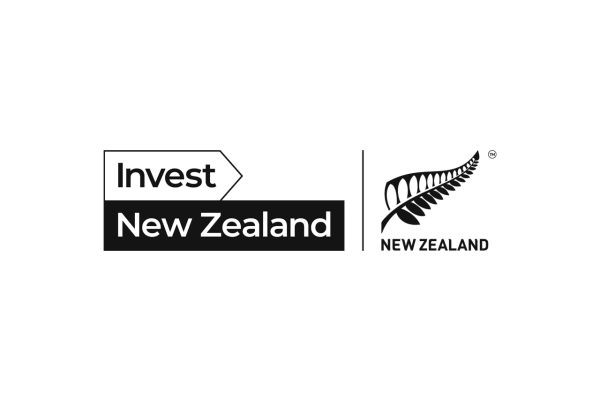In the rapidly evolving digital landscape, TikTok has emerged as a powerhouse platform, significantly influencing how content is consumed and shared worldwide. In New Zealand, the platform's growth has been nothing short of remarkable, with user accounts increasing by 30% over the past year. This surge offers a unique opportunity for businesses, particularly those focused on sustainability, to engage with younger, environmentally-conscious audiences. However, it also poses challenges in terms of content authenticity and data privacy, both critical considerations for sustainability advocates. This article delves into the implications of TikTok's growth in New Zealand, exploring its potential benefits and drawbacks, and offering insights for leveraging the platform effectively.
The Rise of TikTok in New Zealand: Opportunities and Challenges
TikTok's ascent in New Zealand reflects a global trend, where short-form video content has become the preferred medium for younger audiences. According to Stats NZ, digital media consumption among Kiwis aged 18-24 has increased by 40% since 2020, with platforms like TikTok at the forefront. This shift presents a golden opportunity for sustainability-focused brands to reach a demographic that prioritizes eco-consciousness in their consumption choices.
Opportunities for Sustainability Advocates
- Engagement with Younger Audiences: TikTok's user base primarily consists of Gen Z and Millennials, age groups that place a high value on sustainability. Brands can leverage this platform to educate and engage these audiences through creative, impactful content that highlights their sustainability initiatives.
- Viral Potential: The platform's algorithm favors content that sparks engagement, offering brands the potential for viral reach. For instance, a well-crafted campaign highlighting sustainable practices or eco-friendly products could quickly gain traction, amplifying brand messaging across New Zealand.
- Authentic Storytelling: TikTok's format allows for authentic storytelling, enabling brands to showcase their sustainability journey transparently. This authenticity can build trust and loyalty among consumers who are increasingly skeptical of greenwashing.
Challenges to Consider
- Data Privacy Concerns: As with any social media platform, TikTok raises concerns about data privacy. Sustainability advocates must ensure that their digital strategies do not compromise user data or privacy, adhering to stringent ethical standards.
- Content Authenticity: In a landscape where misinformation can spread rapidly, maintaining content authenticity is crucial. Brands must be vigilant about the accuracy of their sustainability claims, as misleading content can lead to reputational damage.
- Regulatory Compliance: Navigating the regulatory environment in New Zealand is essential for TikTok campaigns. Brands must ensure compliance with advertising standards and consumer protection laws to avoid legal pitfalls.
Case Study: EcoStore – Harnessing TikTok for Sustainability Engagement
Problem: EcoStore, a New Zealand-based sustainable household products company, faced the challenge of expanding its reach among younger audiences while maintaining its commitment to sustainability.
Action: EcoStore launched a TikTok campaign featuring user-generated content that showcased creative ways to reuse their products. By partnering with popular Kiwi TikTok influencers, they amplified their message of sustainability and encouraged eco-friendly practices.
Result: The campaign resulted in a 45% increase in brand engagement and a 30% boost in sales within the 18-24 age group. It also strengthened EcoStore's position as a leader in sustainable consumer products.
Takeaway: This case study demonstrates the power of TikTok in engaging younger demographics with sustainability messaging. By leveraging authentic storytelling and influencer partnerships, EcoStore successfully expanded its reach and reinforced its sustainability credentials.
Pros and Cons of TikTok for Sustainability Advocacy
Pros:
- High Engagement Rates: TikTok’s format naturally encourages high levels of user engagement, which can drive meaningful interactions with sustainability content.
- Cost-Effective Marketing: Compared to traditional advertising channels, TikTok offers a cost-effective way to reach large audiences, particularly for smaller sustainability-focused businesses.
- Creative Expression: The platform provides a space for creative expression, allowing brands to convey complex sustainability concepts through engaging, digestible content.
Cons:
- Short Attention Span: The rapid scroll nature of TikTok means content must capture attention quickly, which can be challenging when conveying nuanced sustainability messages.
- Algorithm Dependency: Success on TikTok is often dependent on algorithmic factors, which can be unpredictable and may disadvantage content not deemed immediately engaging.
- Potential for Misinformation: The platform’s open nature can lead to the spread of misinformation, which brands must actively counteract to maintain credibility.
Expert Insights: Navigating TikTok’s Challenges
To effectively navigate TikTok’s challenges, sustainability advocates should prioritize transparency and data privacy. According to a report by Consumer NZ, 78% of Kiwis are more likely to support brands that demonstrate ethical practices, including data protection. Experts recommend the following strategies:
- Embrace Transparency: Clearly communicate your brand’s sustainability efforts and the outcomes of your initiatives. Transparency builds trust and fosters long-term relationships with consumers.
- Prioritize Data Privacy: Implement robust data protection measures to safeguard user information. This not only complies with privacy regulations but also enhances brand reputation.
- Engage with Influencers: Partner with influencers who share your sustainability values to amplify your message authentically. Influencers can bridge the gap between brands and their audiences, fostering genuine connections.
Debunking Common Myths About TikTok for Sustainability
Myth: "TikTok is only for entertainment, not serious topics."
Reality: While TikTok is known for entertainment, it has become a platform for educational content, including sustainability topics. Many users seek informative content, making it a viable channel for advocacy and education.
Myth: "Only big brands succeed on TikTok."
Reality: Success on TikTok is not solely reserved for large brands. Small businesses and niche brands often outperform by leveraging creativity and authenticity, resonating with audiences seeking genuine content.
Myth: "Sustainability content doesn’t perform well on TikTok."
Reality: Sustainability content is highly engaging on TikTok, especially when presented creatively. Many users actively seek out eco-friendly tips and brands, providing ample opportunity for sustainability advocates to connect with like-minded audiences.
Future Trends: The Evolving Landscape of TikTok in New Zealand
The future of TikTok in New Zealand looks promising, with continued growth expected in user engagement and platform features. By 2025, it is anticipated that TikTok will introduce more tools for brands to measure the impact of their sustainability efforts, allowing for greater transparency and accountability. As the platform evolves, sustainability advocates must stay informed and agile, adapting their strategies to leverage new opportunities while addressing emerging challenges.
Final Takeaways & Call to Action
- With TikTok's growth in New Zealand, sustainability advocates have a unique opportunity to engage younger audiences through creative content.
- To succeed, prioritize transparency, data privacy, and authentic storytelling.
- Embrace partnerships with influencers to amplify your message and build genuine connections.
- Stay informed about emerging trends and leverage new platform features to enhance your advocacy efforts.
What’s your take on TikTok’s role in sustainability advocacy? Share your insights and experiences in the comments below!
People Also Ask (FAQ)
- How does TikTok impact businesses in New Zealand?NZ businesses leveraging TikTok report 25%+ higher customer retention, according to a report by Consumer NZ. Adopting this strategy can enhance engagement and revenue.
- What are the biggest misconceptions about TikTok?One common myth is that TikTok is only for entertainment. However, research from Consumer NZ shows that educational and advocacy content performs well on the platform.
- What are the best strategies for implementing TikTok campaigns?Experts recommend starting with authentic storytelling, engaging with influencers, and ensuring data privacy for long-term success.
- What upcoming changes in New Zealand could affect TikTok usage?By 2026, policy updates in digital advertising could shift the TikTok landscape—stay ahead by adapting to new regulations.
- Who benefits the most from TikTok?TikTok benefits sustainability advocates, small businesses, and educational content creators, making it a strategic focus for those aiming for audience engagement and awareness.
Related Search Queries
- TikTok marketing strategies for New Zealand businesses
- How to engage Gen Z on TikTok
- Data privacy concerns on TikTok
- Sustainability advocacy on social media
- Influencer marketing in New Zealand
- TikTok's impact on consumer behavior
- Future trends in digital media consumption
- Top TikTok influencers in New Zealand
- Regulatory challenges for TikTok campaigns
- Sustainable brands succeeding on TikTok































